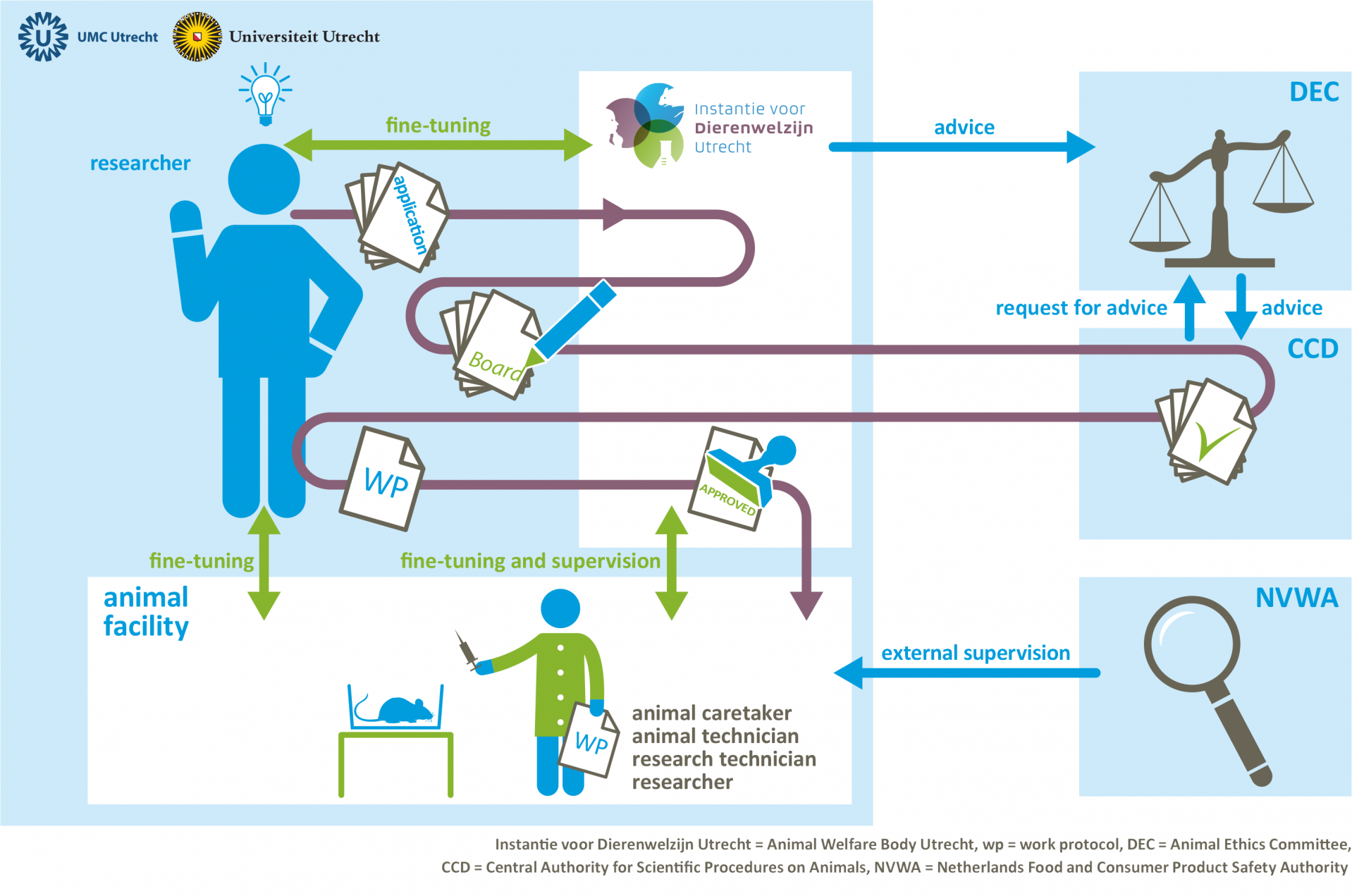Tasks
The Utrecht Animal Welfare Body has a large number of tasks that we conduct on behalf of Utrecht University and UMC Utrecht. These tasks are largely prescribed by law in accordance with the provisions of the Experiments on Animals Act.

The Utrecht Animal Welfare Body is an organisation that is part of Utrecht University and UMC Utrecht. We advise and check on animal testing and 3R: replacement, reduction and refinement. Our tasks concern issues such as animal welfare, alternatives to animal experiments, procedures, registration, supervision and communication with the Central Authority for Scientific Procedures on Animals (CCD). The most important of these tasks include:
Advisory tasks
The organisation and its staff (incl. DEC Utrecht) advise on and make recommendations about:
- conducting experiments on animals and the ethical considerations involved
- animal welfare: acquisition, accommodation, caring for and properly using animals
- 3Rs methods and the transition to a society without animal testing
- socialising and rehoming laboratory animals
- designing, conducting and reporting animal experiments: setup, statistics, preregistration, quality, publication
Procedural support
Support with procedures, from idea to execution:
- working with applicants to align their project proposals with guidelines before submission
- consulting with researchers about conducting their experiments
- supporting researchers with changes in procedures
- establishing, testing and ensuring compliance with procedures for monitoring and reporting animal welfare
Supervision
Supervising:
- laboratory animal welfare
- quality of research
- qualifications and competences of employees
Contact with government agencies
Acting as an intermediary and exchanging information with government agencies (CCD, NVWA) in:
- reviewing project licence applications
- reviewing non-technical summaries
- registering animal experiments
- retrospective evaluation
- modifications
- exemptions for permanent and guest researchers
More…
- stimulating and promoting a ‘culture of care’
- developing internal policy
- helping with initial and continuing education/training
- contributing to external policy and encouraging and influencing it
- connecting researchers, animal technicians and caretakers
- improving and respecting employee competences
- describing and monitoring responsibilities
- safeguarding a safe culture, acting as confidential adviser
- spotting, implementing and facilitating developments
- communicating about animal experiments and policy on animal experiments
- encouraging openness and transparency

